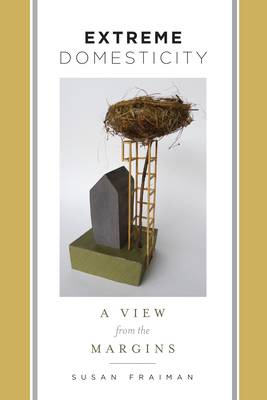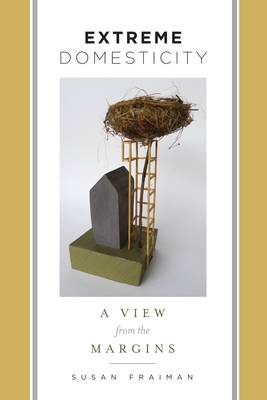
- Afhalen na 1 uur in een winkel met voorraad
- Gratis thuislevering in België vanaf € 30
- Ruim aanbod met 7 miljoen producten
- Afhalen na 1 uur in een winkel met voorraad
- Gratis thuislevering in België vanaf € 30
- Ruim aanbod met 7 miljoen producten
Omschrijving
Domesticity gets a bad rap. We associate it with stasis, bourgeois accumulation, banality, and conservative family values. Yet in Extreme Domesticity, Susan Fraiman reminds us that keeping house is just as likely to involve dislocation, economic insecurity, creative improvisation, and queered notions of family. Her book links terms often seen as antithetical: domestic knowledge coinciding with female masculinity, feminism, and divorce; domestic routines elaborated in the context of Victorian poverty, twentieth-century immigration, and new millennial homelessness. Far from being exclusively middle-class, domestic concerns are shown to be all the more urgent and ongoing when shelter is precarious.
Fraiman's reformulation frees domesticity from associations with conformity and sentimentality. Ranging across periods and genres, and diversifying the archive of domestic depictions, Fraiman's readings include novels by Elizabeth Gaskell, Sandra Cisneros, Jamaica Kincaid, Leslie Feinberg, and Lois-Ann Yamanaka; Edith Wharton's classic decorating guide; popular women's magazines; and ethnographic studies of homeless subcultures. Recognizing the labor and know-how needed to produce the space we call "home," Extreme Domesticity vindicates domestic practices and appreciates their centrality to everyday life. At the same time, it remains well aware of domesticity's dark side. Neither a romance of artisanal housewifery nor an apology for conservative notions of home, Extreme Domesticity stresses the heterogeneity of households and probes the multiplicity of domestic meanings.Specificaties
Betrokkenen
- Auteur(s):
- Uitgeverij:
Inhoud
- Aantal bladzijden:
- 272
- Taal:
- Engels
- Reeks:
Eigenschappen
- Productcode (EAN):
- 9780231166355
- Verschijningsdatum:
- 17/12/2019
- Uitvoering:
- Paperback
- Formaat:
- Trade paperback (VS)
- Afmetingen:
- 142 mm x 218 mm
- Gewicht:
- 340 g

Alleen bij Standaard Boekhandel
Beoordelingen
We publiceren alleen reviews die voldoen aan de voorwaarden voor reviews. Bekijk onze voorwaarden voor reviews.











